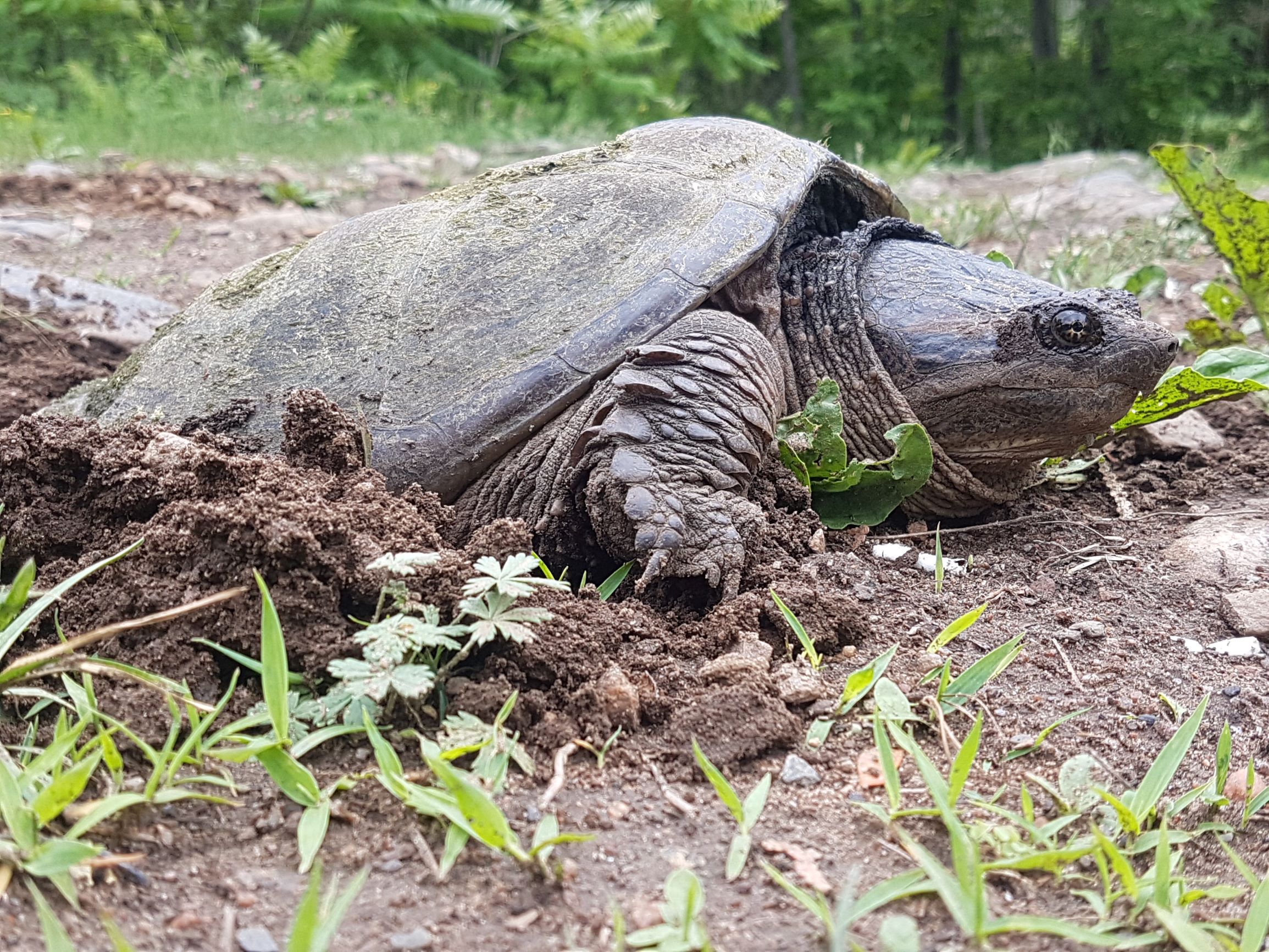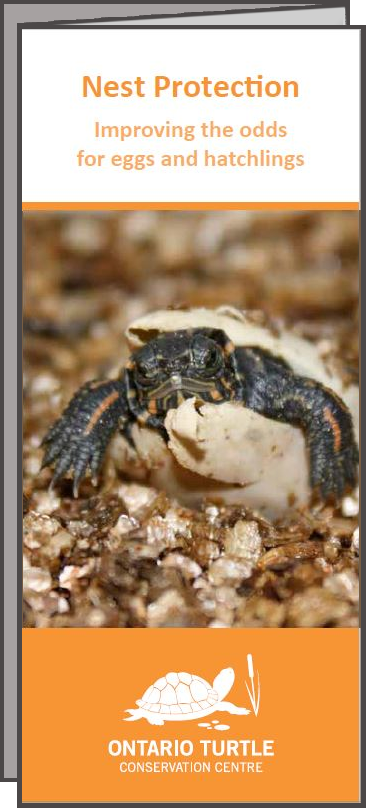Let turtles lay their eggs
Turtles are very vulnerable when they leave the safety and security of the water. If they are disturbed they may leave the nesting site without laying their eggs. They may return another day to try again. If turtles are repeatedly disturbed they may simply give up without depositing their eggs. These turtles risk becoming eggbound (unable to pass eggs) and can die.
If you find a turtle, watch it from a respectful distance. Be sure to keep your pets from harassing the animal. Take note of the location and report your sighting to a monitoring program. The turtle will be able to deposit her eggs safely, and you will be able to witness an event that has been taking place for hundreds of millions of years!
The only time that it is appropriate to pick up a turtle is if it is trying to cross a road. In that case move the turtle carefully in the direction it was headed and then let it be. If you find a turtle which has been injured note its location as precisely as possible and contact the OTCC as soon as it is safe to do so.

A snapper nesting (photo by R Stankiewicz)
Give the babies a chance

This nest has been dug up by a predator
(photo by C Gilders)
If the female turtle makes it to her nesting site and successfully deposits her eggs, her offspring only have a 1% chance of surviving to breeding age. Odds are that each turtle must nest for several years (or even decades!) before it replaces itself.
Raccoon populations are 20 times greater than they were earlier this century. Raccoons and healthy population of skunks, crows, gulls and other predators, dig up most nests and eat the eggs. If you find a nest which has been disturbed by a predator carefully place the eggs back in the hole and bury them.
For more information on what to do about turtles or nests on you property read our Turtle Nests and Nest Protection page.
Do not dig up or move turtle nests or attempt to incubate the eggs yourself. You may damage the eggs and it is illegal to take wildlife into captivity or disturb the nests of endangered or threatened species. Do not cover the nests – the eggs are incubated by the warmth of the sun and shading the nest may slow or stop development. Placing an object over the nest to keep predators out can also trap babies inside.
If a turtle has nested in your garden or driveway keep an eye out for hatchlings from late August until snow and then again in spring the next year. Incubation periods vary between 60 to 90 days depending on the weather in a given year. In a warm year the eggs develop faster and the young may hatch and emerge as early as mid August. In a cooler year they may hatch later in the fall. Painted turtles that hatch late in the fall may stay underground the entire winter and not emerge until the following spring.
Have you had the opportunity to help turtles in some way? Please let us know how by completing this short survey!


